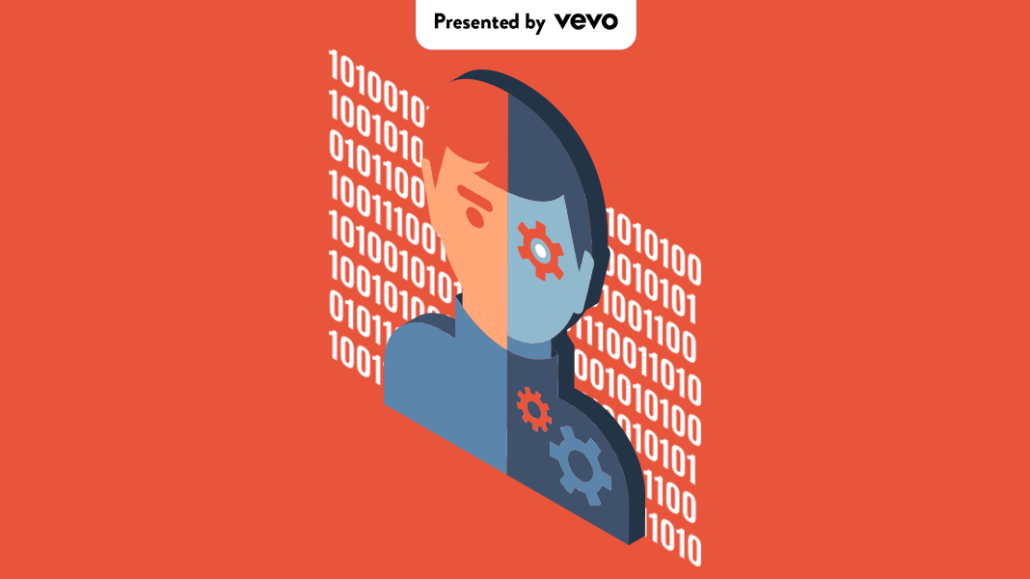Secure your place at the Digiday Publishing Summit in Vail, March 23-25
Bridging AI to agility, empathy and purpose will accelerate marketing’s deep consumer and client relationships

Under one of the more dramatic session titles of this year’s virtual ANA Masters of Marketing conference — Turning Mayhem into Momentum — Michelle Peluso, svp of digital sales and CMO at IBM, on Wednesday underscored the need to link technology platforms like artificial intelligence and natural language processing, or NLP, with human management traits to push past the struggles of the coronavirus crisis.
With it’s Watson platform, IBM certainly has the technology and data processing heft to lead that charge forward. But Peluso said she sees a more nuanced future that includes leadership agility — that can quickly act and iterate on data in unprecedented ways; bolder empathy, especially when it comes to understanding customers, particularly people of color and women and purpose, which she called the hallmark of any organization going forward.
And all this is being driven by priority accelerations caused by the coronavirus crises and the attended economic uncertainties.
“The roadmap that was five years is now five months,” she said.
That speed of change has been felt in the c-suites of media and marketing companies in sectors as diverse as banking, healthcare and manufacturing that have quickly pivoted to adopted new technologies that were on the back burner nine months ago, but are now mission critical for things like supply chain transformation.
But here again, Peluso made the point that AI and NLP can help marketers simulate the very human capability inputs like understand, reason, learn and interact, but at incredible depth, speed and scale. “When we can understand intent, that’s when NLP becomes really powerful,” she said.
Looking forward Peluso said marketers that will thrive in the post-pandemic future must deepen what they know about consumers desires and interactions, change how they work and evolve how they engage with clients.
Knowing the customer better, she said, means breaking up the linear traditional patterns used to follow and then interrupt their journeys with multi-touch attributions that assign deeper values to the human experience that highlights what to do more of and what to stop and to “minimize suboptimal channels,” she said.
As for changing how marketers work, Peluso said again it’s finding the customer interactions and opportunities that matter most to them and that would benefit from another touch provided by AI and NLP. That, she said, would “increase the win rate and deal size” for brand marketers and companies in general.
And in terms of engaging with clients, connections driven by authenticity, agility and powered by massive data inputs can change the marketer/client relationship from one of reaction to prediction and foster “real time creative optimization on the fly.”
The through theme of Peluso’s address is that human-based change and data can lead to conversation marketing.
She pointed to an activation with Behr paints in which Watson asked questions of consumers, learned from those questions, asked more questions all while layering in tone analysis and a deep understanding of Behr’s palate offering to create informed paint selection recommendations.
Peluso closed with the point that AI can, counterintuitively, build and empathetic bond between a consumer and a brand or a product. She used the example of a black dress. Without knowing the context of the consumer’s orientation around the dress, marketers will miss the deeper connection and circumstance queues like mourning or excitement and miss what she called the “high value tasks” of selling a simple black dress that’s not simple at all for the person considering buying it.
Marketers, in the accelerated and transforming time, must be open to the possibility that AI and other data based technology can “augment human capacity, not replace it,” she said.
More in Marketing

‘The conversation has shifted’: The CFO moved upstream. Now agencies have to as well
One interesting side effect of marketing coming under greater scrutiny in the boardroom: CFOs are working more closely with agencies than ever before.

Why one brand reimbursed $10,000 to customers who paid its ‘Trump Tariff Surcharge’ last year
Sexual wellness company Dame is one of the first brands to proactively return money tied to President Donald Trump’s now-invalidated tariffs.

WTF is Meta’s Manus tool?
Meta added a new agentic AI tool to its Ads Manager in February. Buyers have been cautiously probing its potential use cases.








